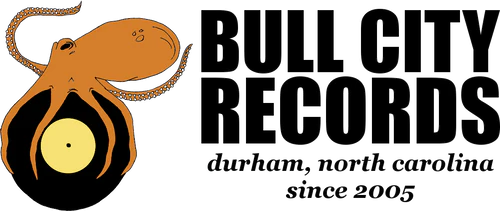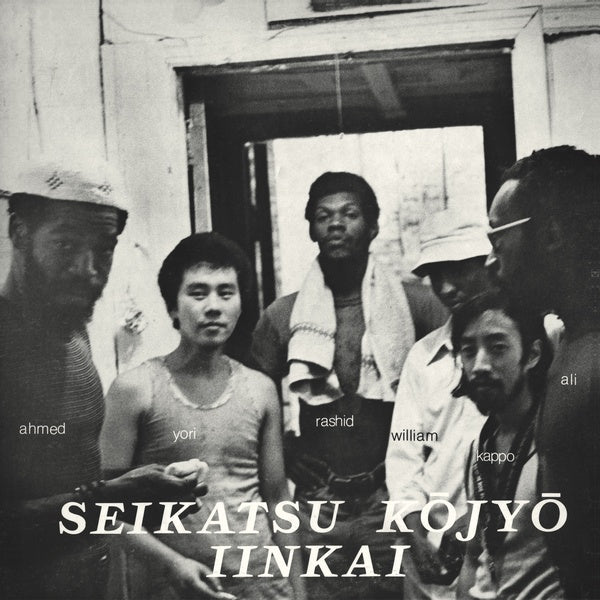1
/
of
1
Seikatsu Kojyo Iinkai - Seikatsu Kojyo Iinkai LP
Seikatsu Kojyo Iinkai - Seikatsu Kojyo Iinkai LP
Aguirre Records (Belgium)
Regular price
$34.98 USD
Regular price
Sale price
$34.98 USD
Unit price
/
per
Couldn't load pickup availability
Ferocious JP/US free jazz bomb. A rare meeting between the NYC free jazz scene and the Japanese free music scene. Following hot on the heels of the first, mid-sixties generation of Japanese free jazz players like Kaoru Abe, Masayuki Takayanagi, Yōsuke Yamashita, Motoharu Yoshizawa, etc., an exciting second wave of younger players began to emerge in the seventies. Two of its leading members were the saxophonist Kazutoki Umezu and multi-instrumentalist Yoriyuki Harada. Both were post-war babies and immigrants to the city, Umezu from Sendai in the north and Harada from Shimane in the west. They first met as students in the clarinet department at the Kunitachi College of Music in western Tokyo. The two began to play together in an improvised duo, with Umezu on clarinet and bass clarinet and Harada on piano. Experiments led to the creation of a trio, with a high-school student called Tetsuya Morimura on drums, that they decided to name Seikatsu Kōjyō Iinkai (Lifestyle Improvement Committee) in joking reference to the Marxist discourse of the student radicals of the time. Around 1973, Umezu and Harada decided to call it a day and go their separate ways. Umezu began playing with the Toshinori Kondo Unit and Harada with the Tadashi Yoshida Quintet. In 1974 Harada formed his own trio and began to play at jazz coffeehouses across Japan. In September 1974 Umezu travelled alone to New York. Umezu soon became known on the scene as Kappo and he started to make connections with some of the young musicians. Umezu wrote to Harada and invited him to come to New York. He accepted and arrived in the city in July 1975. Harada and Umezu took the opportunity to resume their artistic collaboration. Their first concert together in over two years took place on July 20th at another loft, Sunrise Studios at 122 2nd Avenue. Umezu invited along trumpeter Ahmed Abdullah. Abdullah led his own group and was a long-term Sun Ra sideman. William Parker, one of the key figures in the loft jazz scene of the period, was on bass. Abdullah also brought along Rashid Sinan on drums. Sinan played on Frank Lowe's immortal Black Beings (1973) and Arthur Doyle's Alabama Feeling (1978). By all accounts the evening was a huge success, with speed and dynamism of Harada's piano playing gaining him lots of support. Since they had managed to save some money from their day jobs, Umezu and Harada decided to set up a recording session with the same line-up on August 11 at Studio We, where there was a well-equipped studio on the third floor. On their first recordings, the humor element, which is key to their sound, is not yet present. Instead, there is a febrile sense of joy in creation and connection. Old-style gatefold with rare photographs and liner notes by Alan Cummings.
Share
Tags: aguirre records, free jazz, jazz


